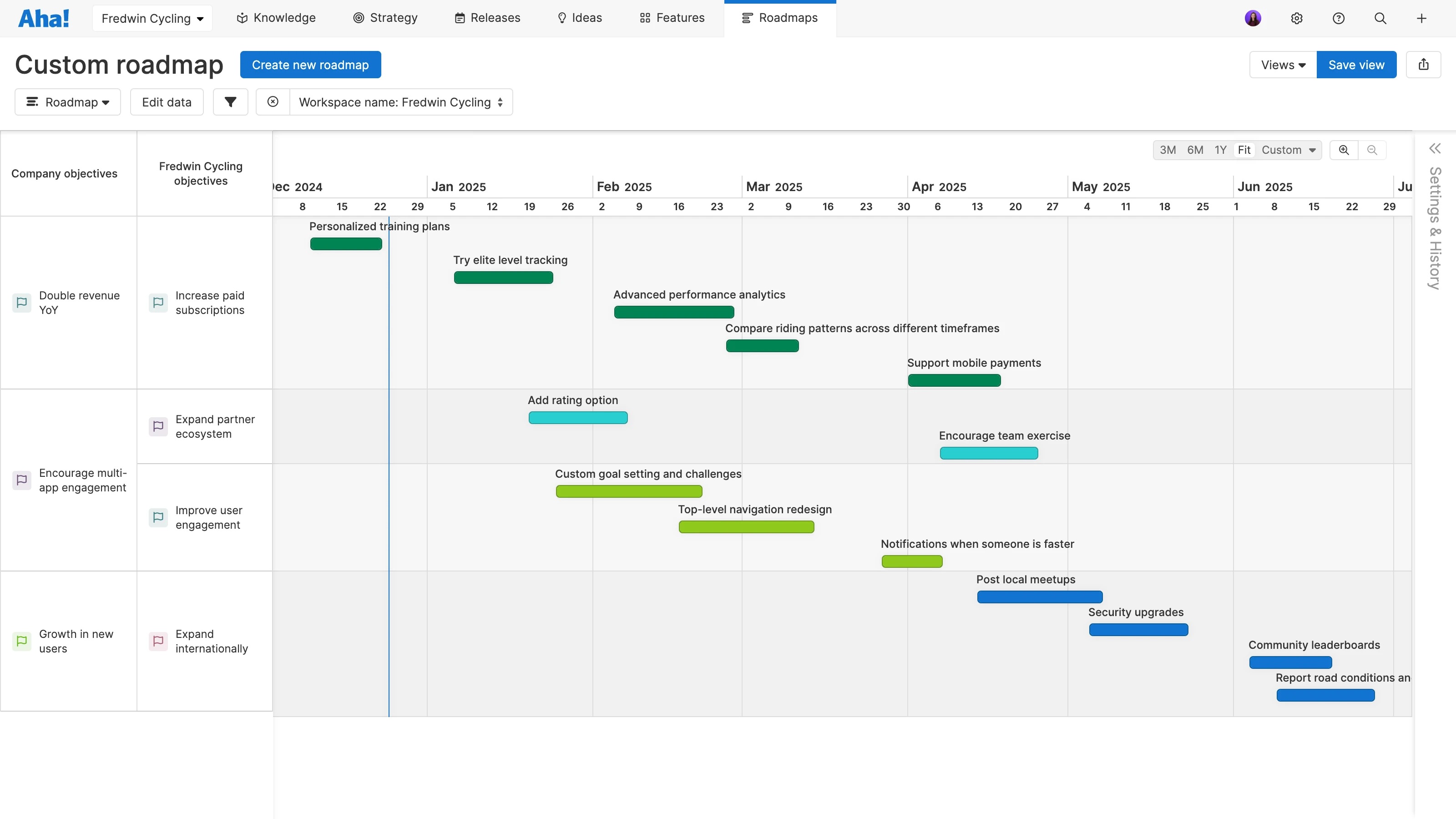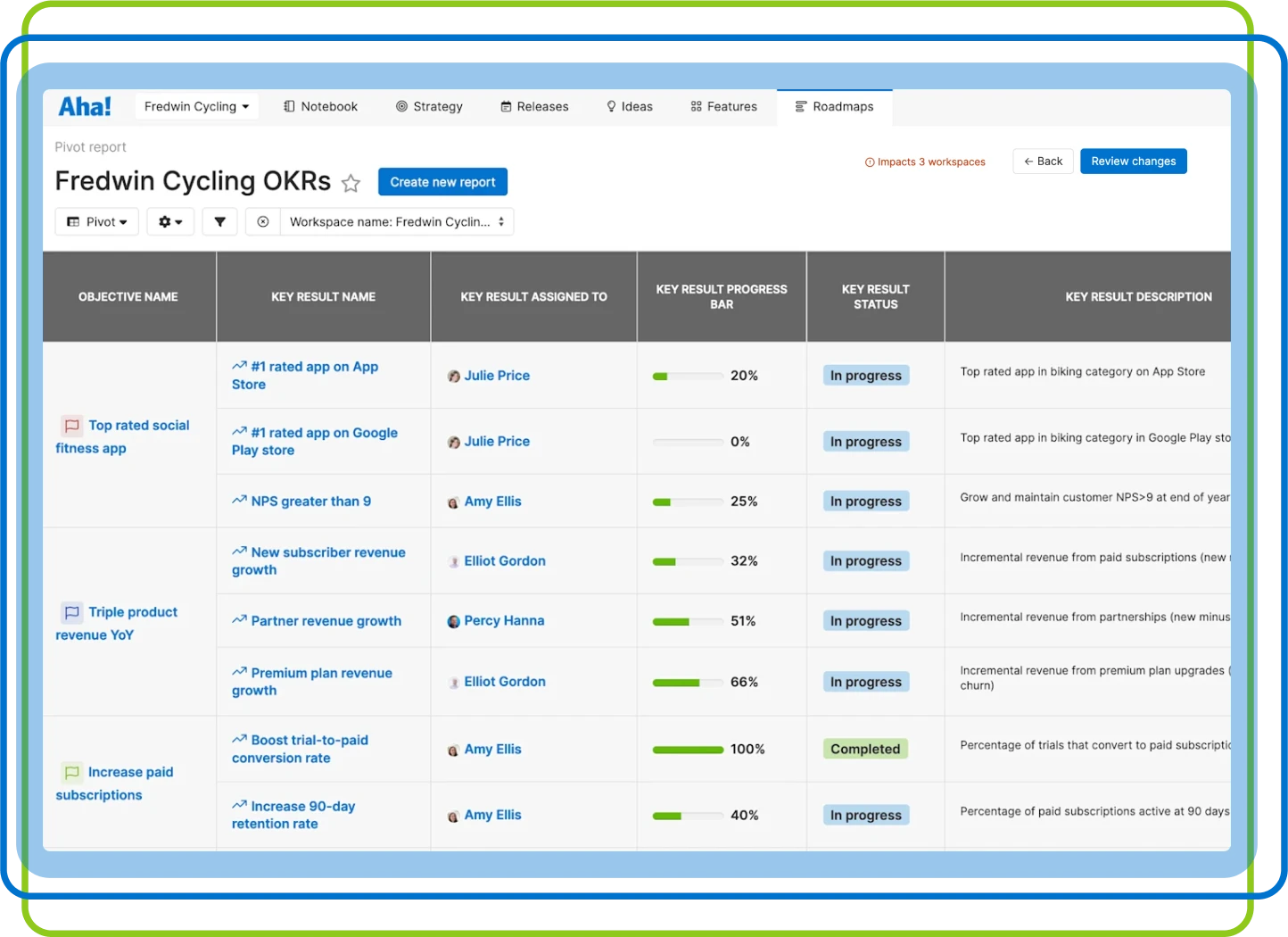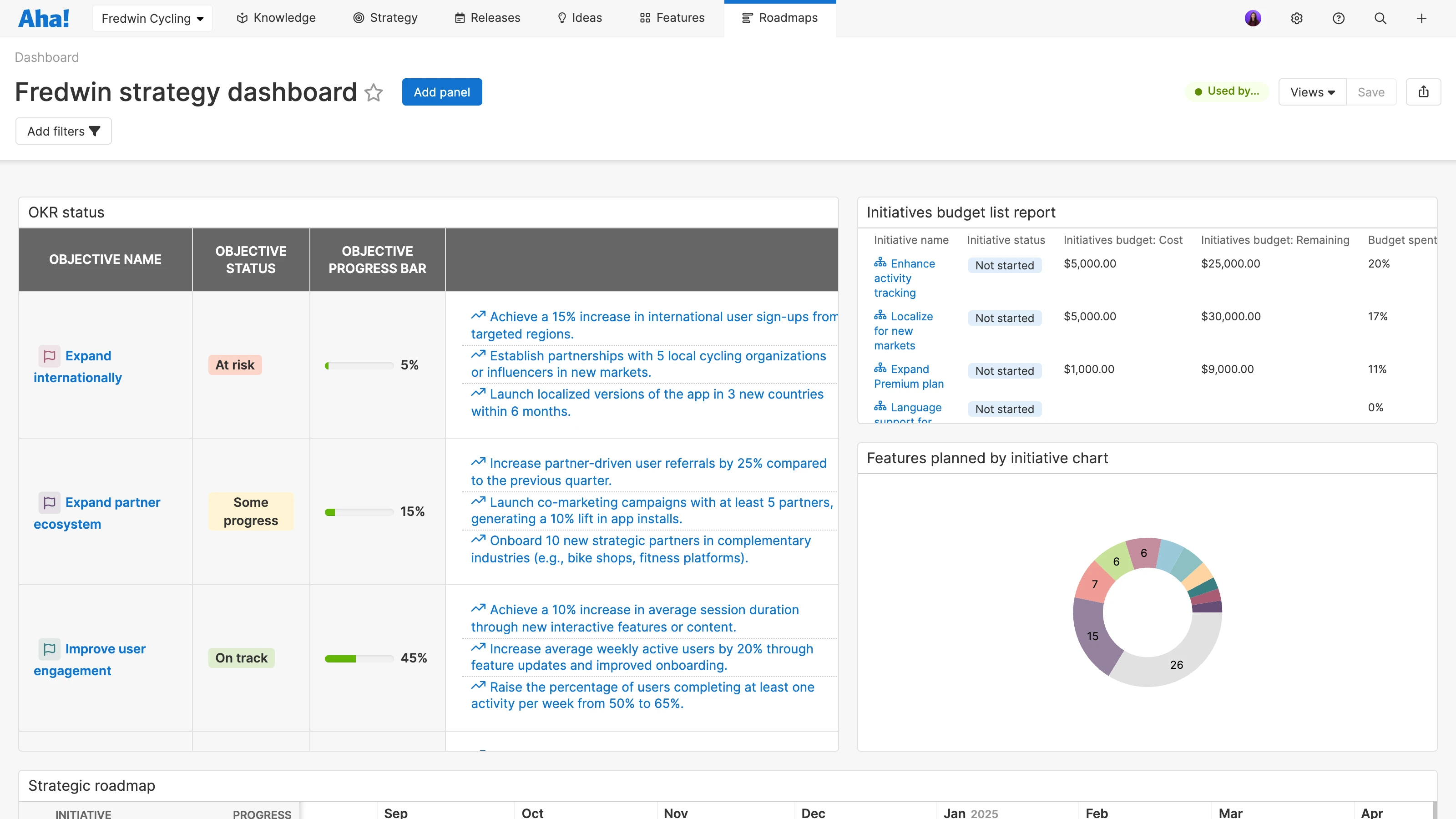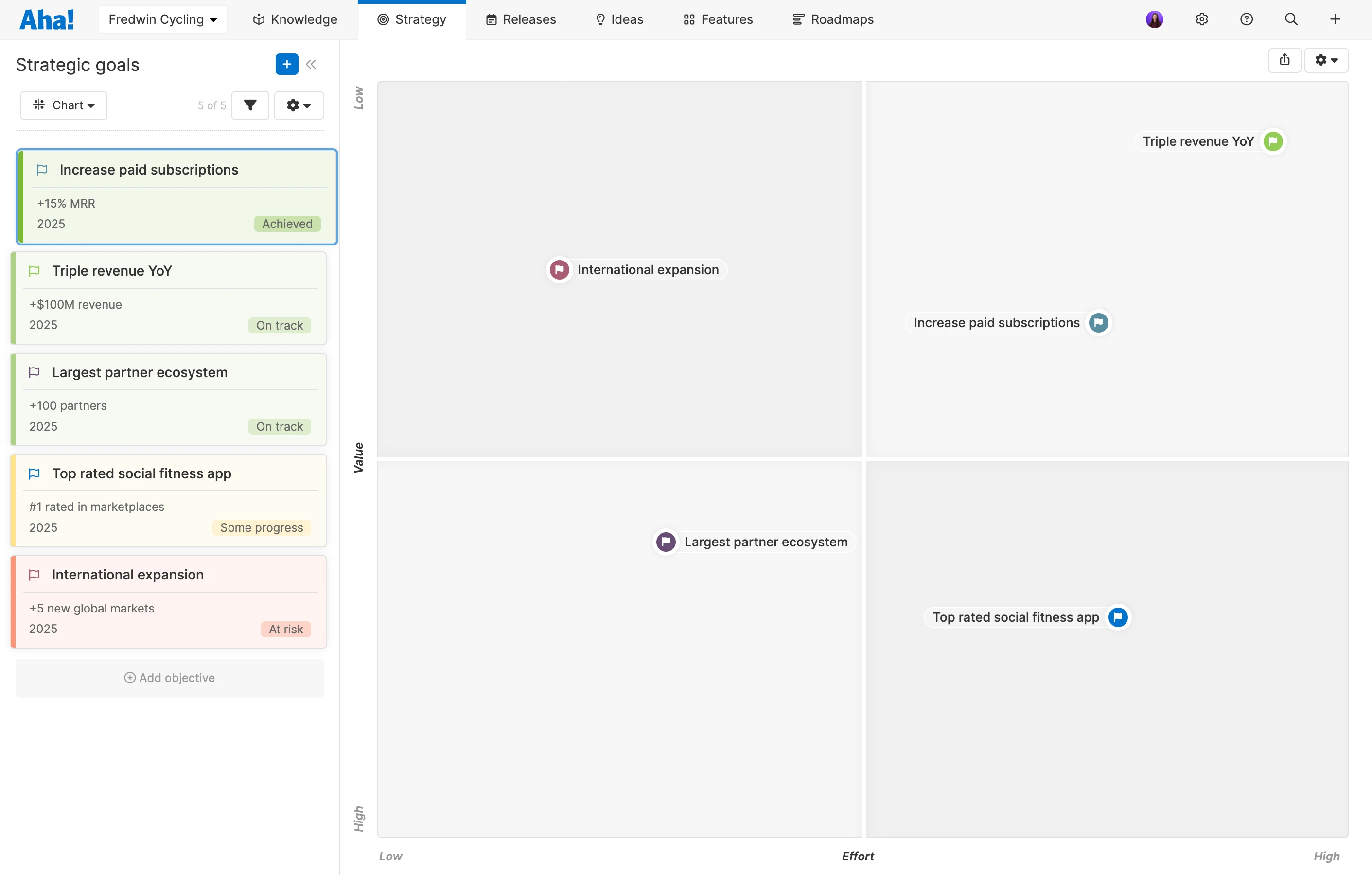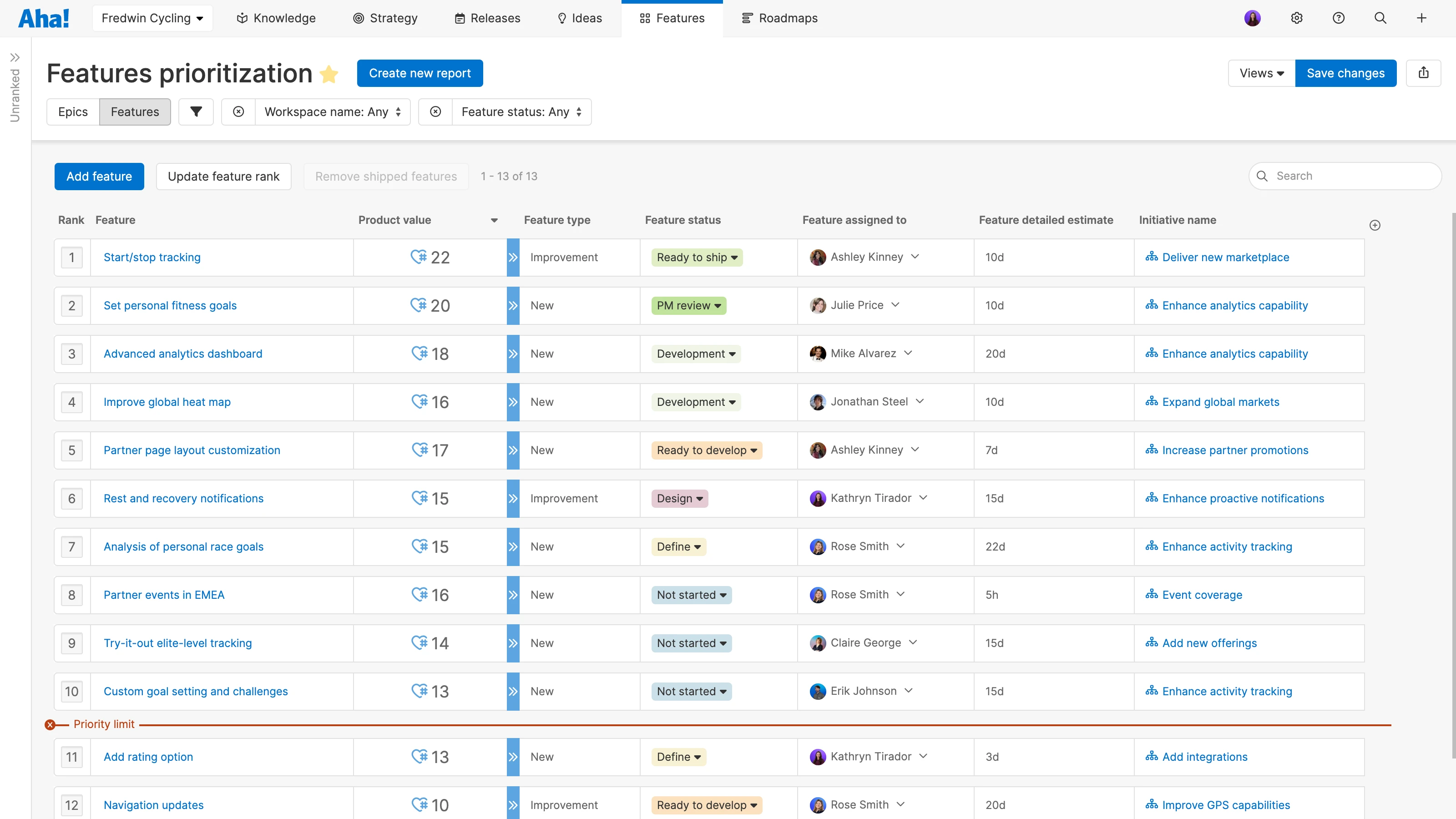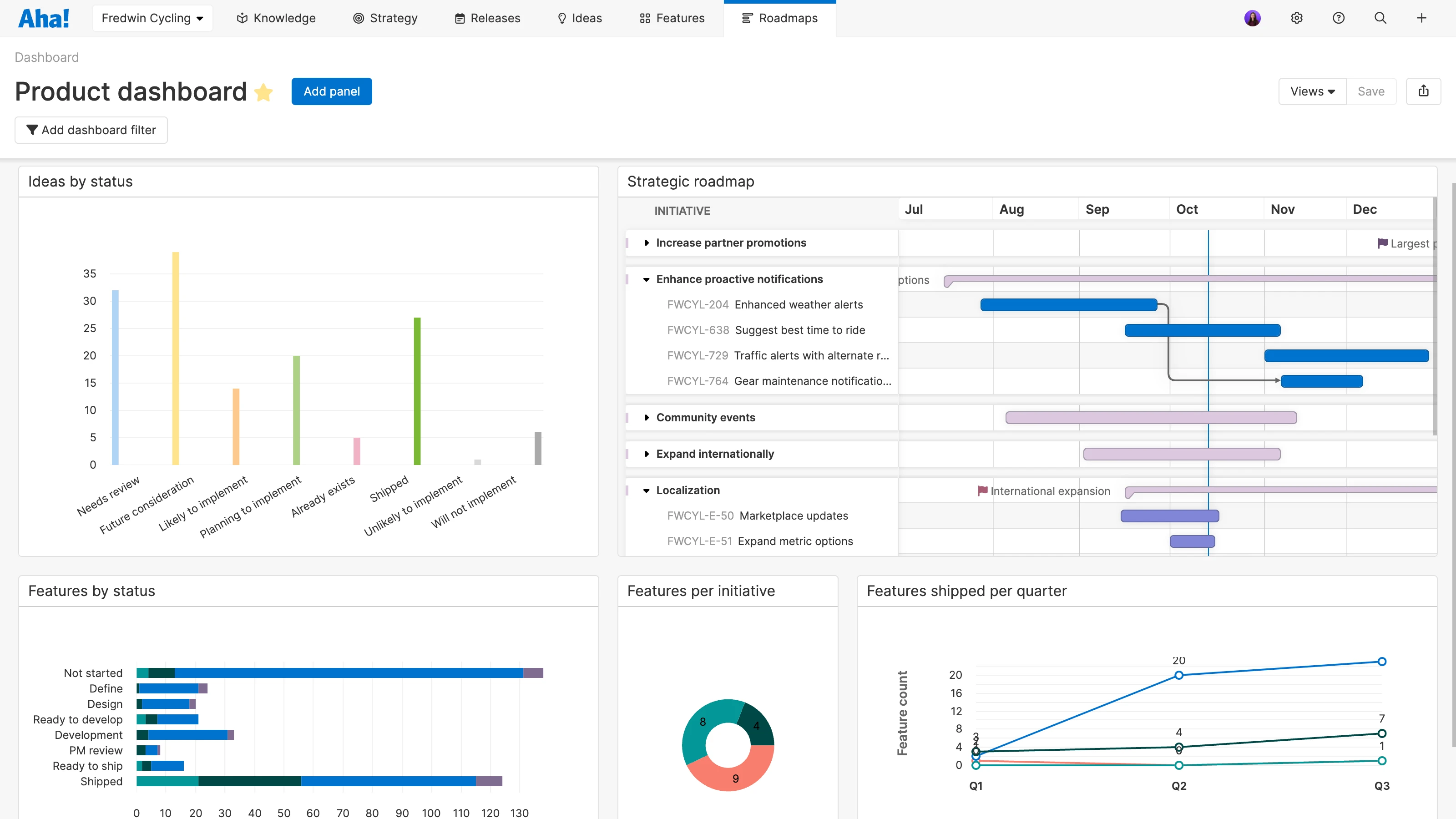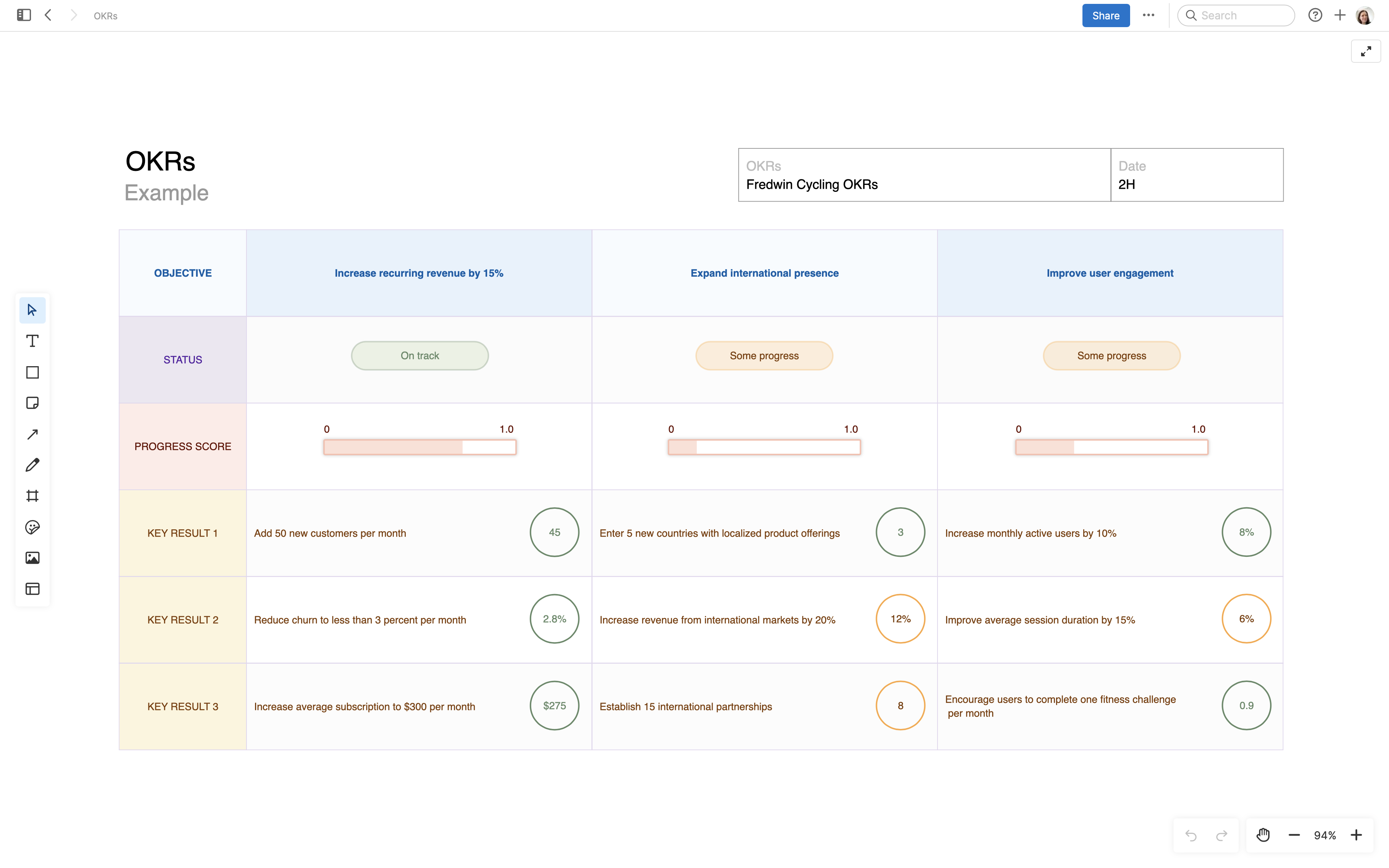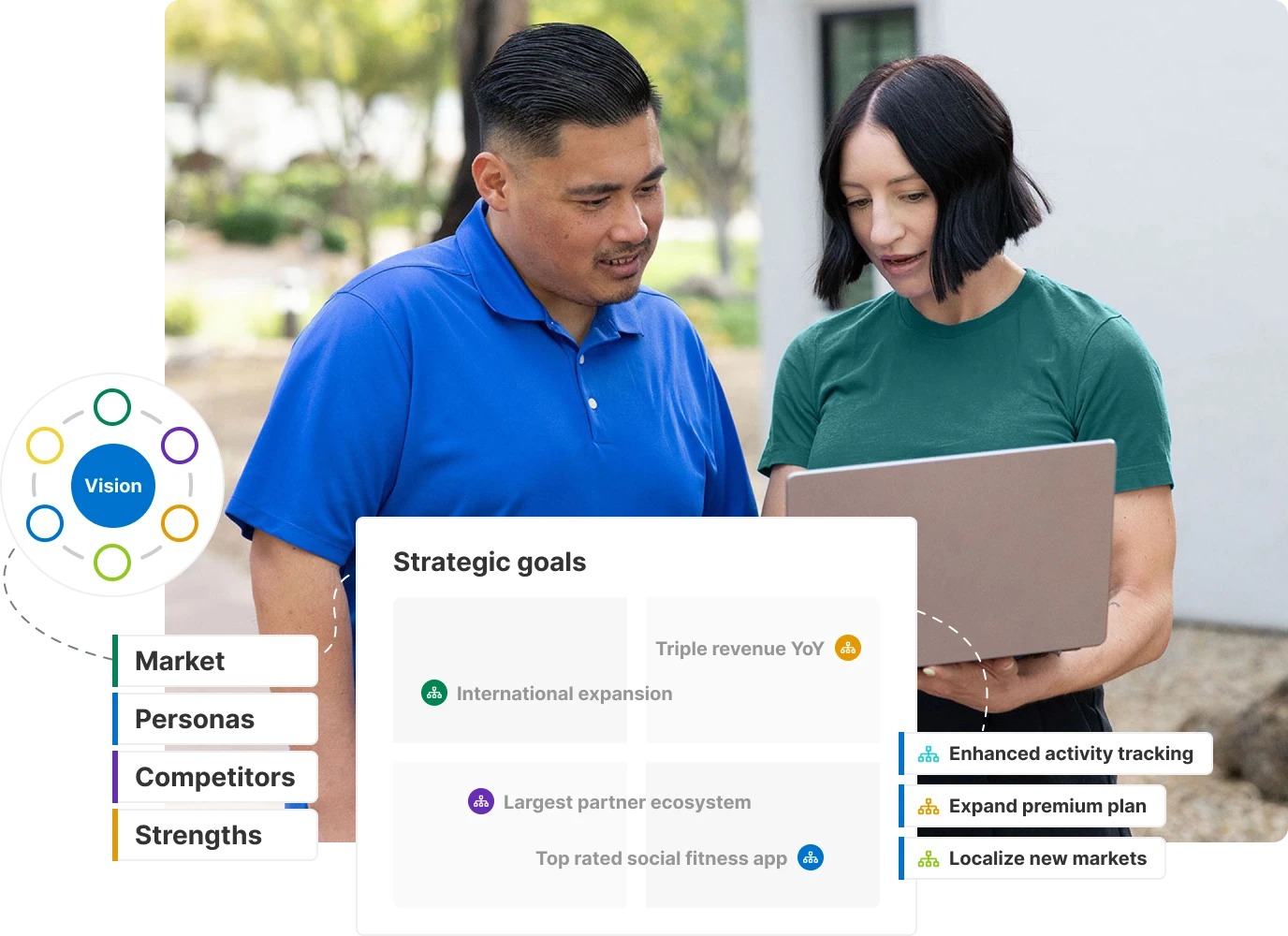
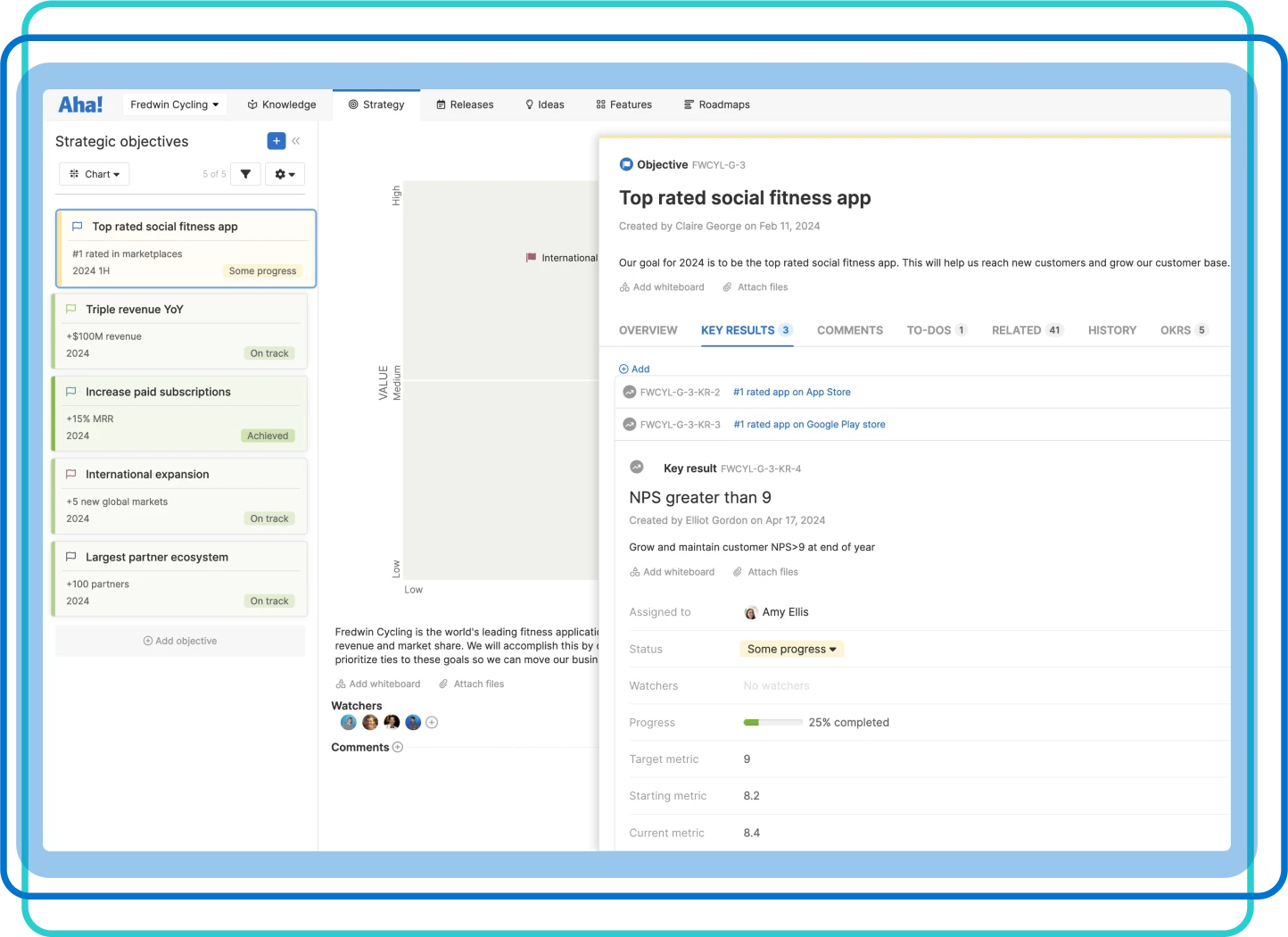
Create an OKR framework
Follow a top-down approach that starts with defining company objectives. Then, establish supporting ones at each level of the organization — including business unit, product line, and individual products or teams. Make each objective specific, measurable, and time bound. This ensures everyone understands what needs to be accomplished and how you will measure success.
